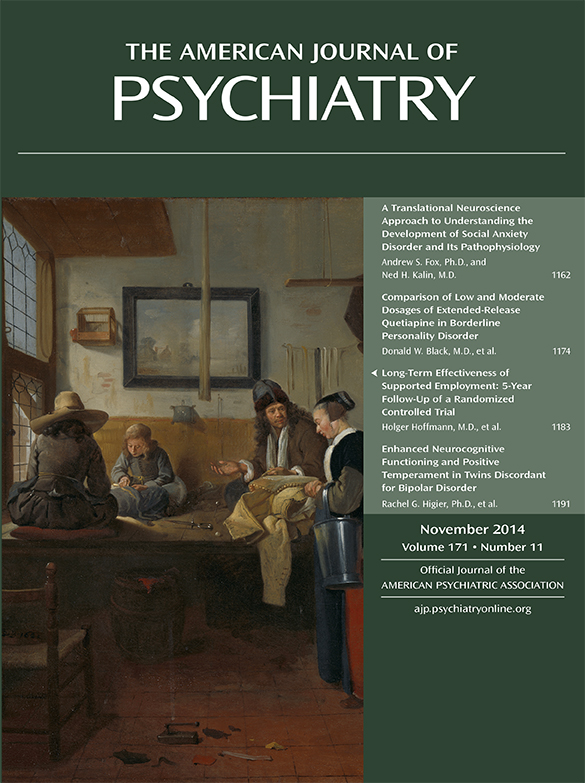Our current treatment system falls far short of what it should be for individuals with severe mental illness. This is painfully obvious to patients, their family members, and clinicians who struggle to provide care and find community supports. E. Fuller Torrey’s book, American Psychosis: How the Federal Government Destroyed the Mental Illness Treatment System, is his account of how we arrived at this conglomeration of failed policies and services systems, the consequences, and suggested solutions. It is clear that Dr. Torrey cares deeply about individuals with severe mental illness and the importance of treatment for them. As a psychiatrist and family member of someone with schizophrenia, he has seen the failings of our health care system up close.
Dr. Torrey begins with the role Joe Kennedy, his daughter Rosemary, and her tragic outcome after a lobotomy would play in focusing the Kennedys on legislation to improve care for people with cognitive disabilities and mental illness. This narrative occurs within a larger 1950s context of increasing awareness to the excesses of state hospitalization, the discovery of chlorpromazine, and a pervasive (albeit unproven) optimism that mental illness can be prevented with existing knowledge and treatments delivered in community settings. This historical backdrop spurred the creation of the federal Community Mental Health Act, and for Dr. Torrey, the genesis of a very wrong turn in mental health policy. Some predominant themes in American Psychosis are: providing for individuals with mental illness should be a state responsibility; federal involvement destroyed existing and emerging state mental health systems; deinstitutionalization has gone too far; the community mental health centers did not live up to their promise of caring for the severely ill; and the public needs to be protected from individuals with severe mental illness.
While there are some truths in this book, a major flaw of it is that Dr. Torrey is selective in what he presents and emphasizes. For example, the historically positive roles of the state hospital systems are emphasized, while their abuses are mentioned in passing. He highlights the historical failures of community mental health centers to treat the types of patients who were leaving the state hospitals but neglects to mention that community mental health center funding was small, and later reduced, relative to the scope that would be needed to care for these individuals. Also, community mental health centers expanded treatment opportunities for many individuals with depression and anxiety disorders. American Psychosis provides an incomplete understanding of how these events, as well as programs such as Medicaid and Social Security Disability Insurance, affected individuals with mental illness compared with other academic works produced by respected scholars.
Similarly, when it comes to topics that can inform health policy, he is often selective in the literature he cites or is prone to anecdotal information (such as newspaper articles), rather than empirical literature (which does not always support his views). For example, when discussing the risk of violence, while he acknowledges that individuals with severe mental illness can be victimized, he spends far more time describing how they can be aggressors and homicidal. He prefers to cite a psychiatrist/television news consultant as the expert in gun violence and mental illness, rather than thoughtful researchers and scholars on the subject. In general, scientific literature that does not prove his points is unlikely to be mentioned; for example, he ignores the literature about the role of co-occurring substance use and the contribution of community levels of violence. Such nuances matter if we are to make informed policy.
Furthermore, he is prone to gratuitous, derogatory statements that at best are inappropriate and distracting (e.g., stating that some charities funded by the Kennedy Foundation personally benefitted the Kennedy family, and that “the ability of the Kennedys to deny inconvenient truths was noteworthy” [p. 38]); at worst they are offensive. For example, when he couples together in one paragraph that Joe Kennedy arranged for Rosemary to undergo a devastating lobotomy, in turn John Kennedy signed the federal Community Mental Health Act, which “lobotomized” the state mental health programs, and we are left now, in a sense, with a mental health system that is “Rosemary's baby” (p. 115).
Dr. Torrey’s book culminates in several recommendations. Some are reasonable and sensible. Some are controversial in pushing the boundaries of civil liberties and privacy rights for individuals with mental illness. Others, such as his belief that states will uniformly rise to the occasion to fund adequate mental health care and support for this population if left entirely to themselves, seem dubious given prior and contemporary experience. That said, there are serious failings in our current systems, and we should have these debates and discussions. But we should have them with a clear appraisal of the evidence base. Anecdote should not trump empirical evidence when formulating recommendations for policy. For the interested reader, I recommend American Psychosis not be the only book you read on these topics.

